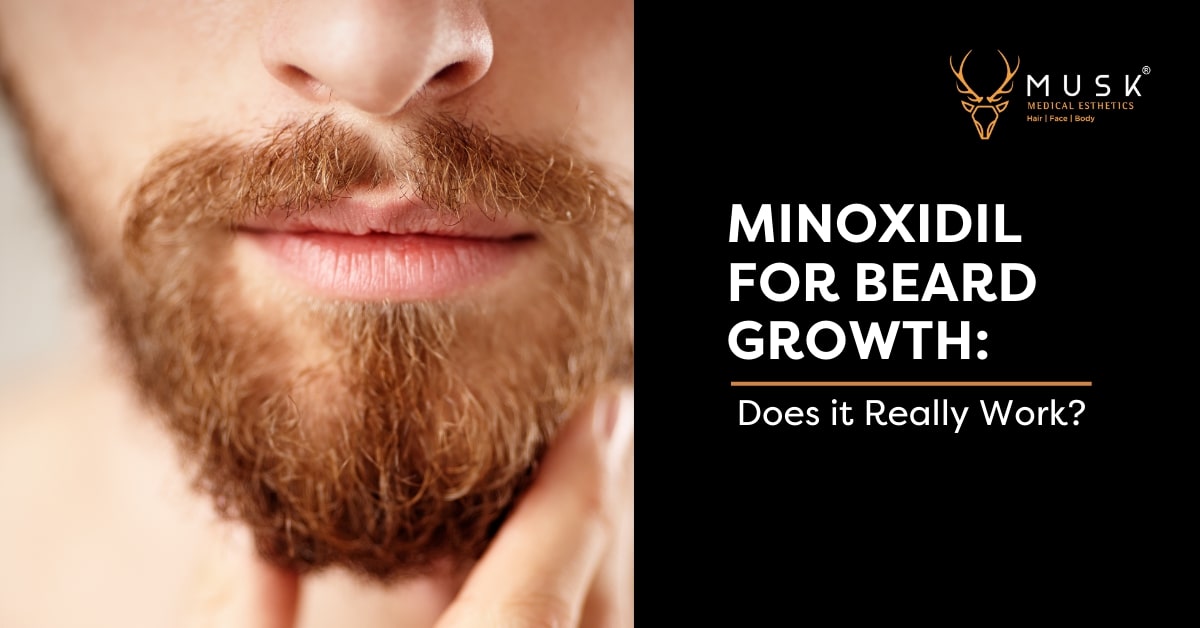Minoxidil For Beard Growth: Does it Really Work?

The quest for a fuller, thicker beard has led many men to explore various treatments, with minoxidil for beard growth often being a popular choice. Initially developed for hair loss on the scalp, this medication has garnered attention for its potential to stimulate beard hair growth.
While it has shown some promise in limited studies, the overall effectiveness of minoxidil for beards remains a subject of debate.
If you’re also here with a question, “Does minoxidil work for beard?” Then the answer is yes. Minoxidil works by increasing blood flow to the hair follicles, which can potentially encourage hair growth.
To learn it all, ensure to read this to the end.
What is Minoxidil for Beard Hair Loss?
Minoxidil is a medication primarily used for treating hair loss. It is available in various forms, such as topical solution, foam, and liquid, and is applied directly to the scalp.
Minoxidil is known for its role in treating high blood pressure. It functions as a vasodilator, meaning it widens blood vessels to improve blood flow.
Interestingly, it has also found a significant application in hair loss treatment. When applied topically to the scalp, minoxidil can stimulate hair growth in individuals experiencing pattern baldness.
How Does Minoxidil for Beard Growth Work?
Minoxidil stimulates beard growth by increasing blood flow to the facial hair follicles when applied topically. This vasodilation may enhance nutrient delivery and extend the growth phase of hair follicles, potentially resulting in thicker and longer beard hair. Although its use for beard growth is off-label and effectiveness varies among individuals, regular application is recommended for best results.
Users should be aware of possible skin irritation and consult a healthcare provider before starting minoxidil beard growth treatment.?
Is Minoxidil Good for Beard Growth?
Minoxidil can help with beard growth. While it’s primarily used for hair loss on the scalp, it can also stimulate hair growth on your face. However, there’s limited research specifically on minoxidil for beards.
You might see thicker and fuller beard hair with consistent use, but it could take several months. Be aware of potential side effects like skin irritation.
If you’re considering minoxidil for beard growth, it’s best to consult with a dermatologist to discuss its suitability for you.
Benefits of Using Minoxidil for Beard Growth
- Thicker Beard: Minoxidil can help increase the density of your beard, filling in patchy areas.
- Fuller Beard: By extending the hair growth phase, minoxidil can contribute to a fuller-looking beard.
- Faster Growth: Some users report accelerated beard growth when using minoxidil.
- Improved Hair Quality: Minoxidil may enhance the overall health and appearance of your beard hair.
How to Use Minoxidil for Beard Growth?
Begin by cleansing your facial skin thoroughly with a gentle cleanser to remove any oils or impurities that might hinder the product’s absorption. Once your skin is clean and dry, apply a small amount of minoxidil solution directly to your beard area, focusing on areas with sparse or patchy growth.
Gently massage the solution into your skin to ensure optimal penetration. Allow the minoxidil to dry completely before applying any other skincare products or moisturizers.
For maximum effectiveness, it’s generally recommended to apply minoxidil twice daily, once in the morning and once in the evening.
Consistency is key when using minoxidil for beard, as it may take several months to observe noticeable results. While many users experience positive outcomes, it’s important to remember that individual responses to minoxidil can vary.
If you experience any adverse reactions such as skin irritation or unexpected hair growth in unwanted areas, discontinue use immediately and consult with a healthcare professional.
What are Minoxidil Beard Side Effects?
While minoxidil is generally well-tolerated, it can cause some side effects when applied to the beard area.
- Skin Irritation: This is the most common side effect, often manifesting as redness, itching, or flakiness. Mild irritation can usually be managed with gentle skincare products. However, if the irritation is severe or persistent, discontinue use and consult a healthcare professional.
- Unwanted Hair Growth: Minoxidil can stimulate hair growth in unexpected areas. This might include the neck, cheeks, or even other parts of the body. While typically manageable through careful application and trimming, it can be a cause for concern for some users.
- Increased Hair Shedding: Initially, you might experience increased hair loss in the treated area. This is often temporary and can precede a phase of thicker, fuller growth. It’s essential to maintain consistency during this shedding phase.
Is Minoxidil Safe for Beard Growth?
Minoxidil for beard growth is generally considered safe. However, it’s only approved for hair loss on the scalp, many people use it off-label for beard enhancement.
While it can be effective in stimulating hair growth, it’s essential to be aware of potential side effects, including:
- Weight gain
- Dizziness
- Redness or irritation on the skin where applied
- Hair growth in unexpected area
- New hair colors or textures
If you experience any adverse reactions, discontinue use and consult your dermatologist.
Who Can Use Minoxidil for Beard Growth?
Minoxidil for beard growth can be used by adult men who are seeking to enhance the density and coverage of their facial hair.
Suitable Candidates:
1. Adult Men
Typically, minoxidil is recommended for use by men who are 18 years old and above.
2. Those with Patchy Beard Growth
Men experiencing patchy or uneven beard growth can benefit from minoxidil to promote more uniform hair growth.
3. Individuals with Slow Beard Growth
Men with slow or delayed beard growth may find minoxidil helpful in accelerating the growth process.
4. Healthy Individuals
Generally, individuals being under any major medical condition that could interact with minoxidil are suitable candidates. But it’s always advised to consult with a healthcare provider before starting.
Who Should Avoid Using Minoxidil for Beard Growth?
1. Women
Minoxidil for beard growth is not recommended for women due to potential hormonal implications and the risk of unwanted facial hair growth.
2. Minors
It’s generally not recommended for individuals under 18 years old, as their facial hair growth may not yet be fully developed.
3. Those with Allergies or Sensitivities
Individuals with known allergies to minoxidil or any of its ingredients should avoid using it.
4. People with Skin Conditions
Those with sensitive skin or pre-existing skin conditions on the face should use minoxidil cautiously and under medical supervision.
Alternatives to Minoxidil for Beard Growth
While minoxidil is often discussed for beard growth, there’s limited evidence supporting its effectiveness. It’s generally recommended to explore alternative approaches.
- Neoxyl is a promising option, often touted as a more effective and gentler alternative to minoxidil. It’s a water-based formula without harsh solvents.
- Natural remedies like peppermint oil have shown some potential in stimulating hair growth, though research is still limited.
- Lifestyle factors such as a balanced diet, stress management, and regular exercise can also contribute to overall hair health, including beard growth.
- Acupuncture is another method explored by some, but scientific evidence supporting its efficacy is scarce.
Remember, individual results can vary, and it’s essential to consult with a healthcare professional for personalized advice.
Conclusion
Minoxidil is undoubtedly proven to be a good treatment to help beard growth, but it’s best to look at alternatives for faster and more effective results. Moustache/beard transplantation at Musk Clinic is one of the best options to consider for beard growth.
It is a safe surgically backed solution for beard growth, done using the latest technology. It gives you permanent results for patchy beard. Book your consultation at Musk Clinic now for beard hair transplantation.









